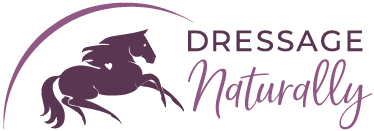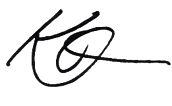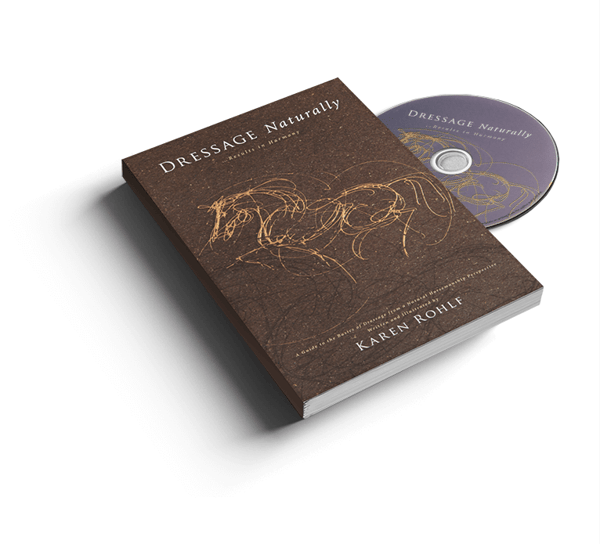Training horses, like most things, does not happen in a straight line. Even if you have one clearly defined goal (to do dressage, working equitation, jumping, or reining) success needs a multi-faceted approach. Doing the same routine every day can create muscle memory but can dull the mind and can limit your ability to go deep into different aspects. "All work and no play makes Johnny a dull boy". Horses are emotional and complex beings and just as with humans, variety and cross-training work.
It's not just about different physical training routines. You can create more strategic training plans if you distinguish between mental education, physical education, playtime, and exposure.
At the risk of making some people gasp, this blog is going to be full of anthropomorphism. I do this in order to help you remember these different categories of training and perhaps better consider things from your horse's perspective. It is a model to help make a point. In the words of human behavior expert, Mark Bowden: "All models are wrong, but some of them are helpful". I hope you find this helpful.
I became more aware I was using this model while training a 3-year-old filly (Quora). This is an age where they have a lot to learn, can start to experience some physical training, and need exposure but they are still 'kids' that relish playtime.
Sometimes my sessions with Quora had nothing to do with formal training or 'school'. We would just BE in the barn together. Other times there is a clearer intention. Those times I would tell Quora she was 'going to school today'. (Yes, I talk to my horses. Yes, out loud). Then I would tell her what class we were going to take at school today. Unlike human school, in horse school, there were only one or maybe two different classes a day.
Sometimes we went to Math Class. Sometimes we went to Gym Class. Sometimes we had Recess, and sometimes we went on Field Trips. Let's look at the difference between each of those.
"Math" Class:
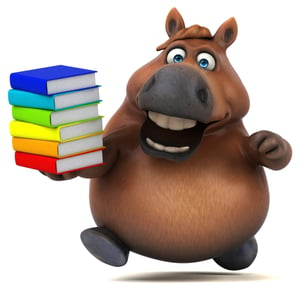
Notice the quotes... This is not about teaching your horse how to count. "Math Class" is where we were going to learn something specific. 1+1=2 and 'feel on your haunches + intention = Move your hindquarters'. These are clear exercises focused on the horse gaining mental clarity. This = That. When I do This, you do That. If you do This, I do That. Your horse should feel smarter at the end of these sessions.
The goal of these sessions is to imagine that when my horse goes back to the pasture and her friends ask her: "What did you learn?" she is able to clearly describe it. "When Karen touches my hind end with 'that special energy' it means she wants me to move my butt'.
In order for Math class to be beneficial, we have to make sure the horse is in a state of mind and body to be able to learn. If they are distracted, emotional, or have too much pent-up energy they likely won't be able to concentrate.
It is our job to explain things well. If our horse's behavior isn't 'adding up' or if they are having trouble it doesn't mean they are 'bad at math', it means we haven't figured out the best way to explain it to them.
Gym Class:
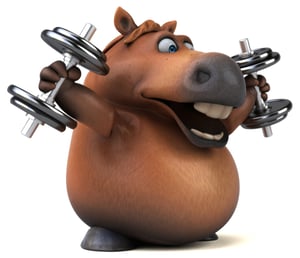
Gym Class is where we practice and improve our horse's physical abilities. The focus could be on building strength, coordination, or stamina. We could be looking to increase suppleness, straightness, or carrying power. All of those have different protocols or exercises designed to achieve them. This is where you might seek to improve movements or abilities specific to your discipline (jumping, sliding, maneuvering through obstacles).
In order for Gym Class to be beneficial, the horse has to understand the instructions and rules of the game. If they don't understand the aids for shoulder in, then spending an hour wrestling with your horse's body and doing it 'one more time' a hundred times will only build the wrong muscles and coordination. If your horse doesn't know how to respond to the aids for a shoulder in with lightness you should go back to "Math Class" and explain it.
As an excellent Gym Class teacher you will need to know the art of motivation. Very few individuals love doing squats and push-ups on their own so you will need to be a master of inspiring effort. Sometimes it is as simple as taking things outside the arena to a more naturally inspiring location.
Recess:
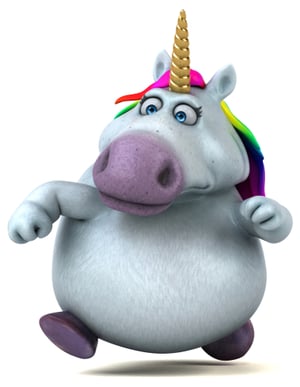
Recess is when kids get to break loose, run around, just chill out, and let their inner unicorn express itself. In Recess they get to do what THEY want to do and you can be a hero to them by giving them this opportunity.
The goal is to end up calm, refreshed, and energized. If kids are falling asleep, recess can perk them up. If kids are fidgeting in their seats recess can release tension energy. The result of a well-done recess is the student comes back in a more optimal state of mind and body to do whatever activities are coming up next.
In order for recess to be beneficial it has to meet the need of the individual in that moment. You can't take an exhausted introvert and make them go play dodgeball and expect them to be in a better state of mind afterward. You also can't take an extrovert who is bouncing off the walls, ask him to sit in the shade and read poetry then be surprised when he launches a rebellion.
You need to know your horse, read your horse, and pay attention to what he needs. Recess is all about setting up a circumstance and giving your horse as much freedom as possible to do as he likes with it.
Field Trip:
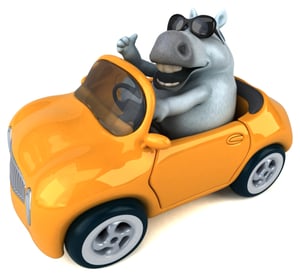
Field Trips are where you see something new. It's an experience. Many of my childhood field trips are engraved in my memory, from my eighth-grade hiking trip to Bear Mountain to away games with the marching band. They not only exposed me to things outside my normal routine but they caused me to experience my classmates and teachers in a new way. Field trips often are where you can take things you have learned and put them into practice in normal life.
In order for field trips to be beneficial there has to be trust. Kids need to trust the teachers and trust the situation. It's natural for some individuals to have some trepidation about 'the unknown' but there needs to be enough trust to be able to still 'go there'. Sticking your toes in the water of new environments can turn trepidation into a positive experience that leaves the individual feeling more empowered and confident than they started. Parents need to give it a lot of thought before signing that permission slip. As horse owners and trainers, we need to be equally thoughtful about the situations we send our horses into. Without thoughtfulness and trust, a situation can cause fear to escalate and take an individual over the edge (emotionally and perhaps physically)
In these Field Trips, you find out just how good your foundational training and relationship with your horse are. You need leadership and boundaries. Without the leadership necessary to control the boundaries, a fearful horse can quickly get into a situation that is dangerous for him and you.
If you don't do Field Trips, you risk not preparing yourself and your horse for what he may encounter out there 'in the world'. Well-thought-out exposure to new environments and situations can really expand the possibilities for you and your horse and are well worth putting the effort into.
 Karen Rohlf simplifies and explains complex training issues,
Karen Rohlf simplifies and explains complex training issues,
and empowers you with the confidence to get results.
Start your Free Trial now
Plan Your Curriculum
The next time you make your weekly plan for your horse, consider what your horse needs in order to have a beneficial experience with 'school'. Instead of just 'working on stuff' you can strategically consider the bigger picture. Thinking of different classes in this way can remind you of the intention of what you are doing.
Before you start out with your horse stop and ask yourself: "What is the intention of this session?" What does your horse need? What can you do today to make tomorrow better?
If you need help thinking of different things to do with your horse I recommend the Dressage Naturally Video Classroom. For help specifically with making training plans check out the Happy Athlete Progress Journal.
Would you like to see a video where I give examples of everything in this blog? Go to the Video Classroom and search for Horse School. It is in the September 2023 Videos. The first week is free for new members!
Thoughts? Scroll down to leave a comment.
